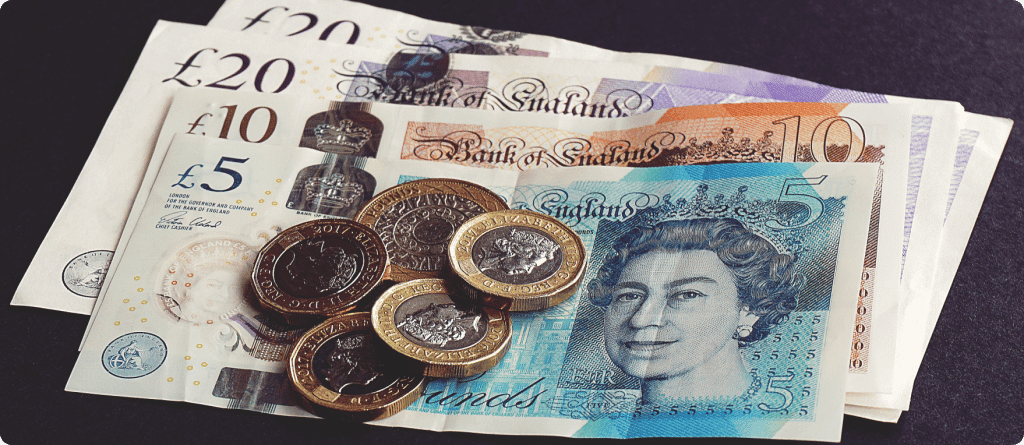Call Us Today.
We have the resources, the experts, the knowledge and experience to help your business grow. And with over 1,000 accountancy clients in the UK and London, the volume of our work allows us to share economies of scale with you.
Table of Contents
The 2022 Spring statement was one of the most anticipated in recent years. With inflation rising in the UK and the cost of living reaching crisis levels, Brits wanted to know how the government will tackle these problems and make life easier. Braant have decided to give a bit more of an explanation in the changes, and how it might effect you.
Rishi Sunak, the Chancellor of the Exchequer, announced several measures that’ll affect how much tax people in the UK will pay.
Here we bring you the highlights of the Spring statement, showing you the 2022 tax changes, and what they mean for you.
The headlines of the spring statement are:
· The 1.25% increase in NIC remains, but the threshold is raised by £3,000 to £12,570
· A £1,000 tax cut for small businesses via an increase of Employment Allowance to £5,000
· 50% business rate discount up to £110,000
· Income Tax to be cut from 20% to 19% in 2024
· Measures to ease pressure on household budgets such as cutting fuel duty, cutting VAT on energy-saving materials, and doubling Household Support Fund.
NIC Threshold Is Raised By £3,000 To £12,570
The 1.25% increase in National Insurance Contribution, which takes effect in April, remains. Since the announcement was made in September 2021 that the National Insurance Contribution will be increased from 12% to 13.25%, there have been a lot of calls for the increase to be scrapped. However, the Chancellor made it clear in the Spring Statement that the 1.25% NIC increase will go ahead, saying it is a dedicated funding source for the NHS and social care.
This means that workers’ take-home pay will reduce every month.
However, in what has been described as “the best way to help low and middle earners through the tax system”, the Chancellor raises the NIC threshold to £12,570. This is a £3,000 raise.
Before now, a worker earning £9,568 per year must pay National Insurance, but now you’ll have to earn above £12,570 to pay National Insurance.
The Chancellor stresses that this is the largest increase in a basic rate threshold ever. He explains that the plan has always been to match the National Insurance threshold with the £12,570 Income Tax threshold, but that the £3,000 difference was supposed to be covered in small increments over many years. He revealed that what was planned for this year was to increase the NIC threshold by £300, but instead, he increased it by the full £3,000.
The Chancellor calculates that despite the 1.25% increase in NIC, the threshold change will mean about 70% of workers will pay less tax. He concluded that the threshold change cut taxes of workers by over £330 per year, making it a £6 billion personal tax cut for 30 million people across the United Kingdom.
£1,000 Tax Cut For Small Businesses via Increase of Employment Allowance to £5,000
The Employment Allowance for small businesses will increase to £5,000 from April.
The Employment Allowance allows small businesses and charities to reduce their National Insurance liability by up to £4,000.
So, the planned 1.25% NIC increase did not only get individuals worried, but it also got small businesses worried. Business representative bodies like the FSB (Federation of Small Businesses) called on the government to raise the Employment Allowance so that small businesses will be able to cope with the NIC increase.
This move by the Chancellor to increase the Employment Allowance to £5,000 is a tax cut worth £1,000 for half a million small businesses.
50% Business Rates Discount
Small businesses in retail, hospitality and leisure will get a 50% discount, up to £110,000 on their business rates.
The business rate is the tax on non-domestic properties set by the government but collected by the local council. You’ll have to pay a Business Rate if you use a building as a shop, office, pub, warehouse, factory, guest house, etc.
The Chancellor says that this tax cut which takes effect from April is worth £1.7 billion for hundreds of thousands of small businesses. He calculates that it will help typical pubs save £5,000 per year.
Income Tax to Be Cut From 20% To 19% In 2024
The Chancellor says that a primary goal has always been to cut Income Tax, but that it will be irresponsible to meet that ambition this year. He pointed to COVID and the war in Ukraine as some of the challenges making it difficult to achieve income tax cut this year.
He, however, promised that the basic rate of income tax will be cut from 20% to 19% in 2024. To underline how difficult it is to achieve an income tax cut, he says that has happened only twice in 20 years.
However, this promise to cut income tax by 2024 is based on a gamble that the economy will be stable enough to weather the effects of such cuts. According to him, the OBR expects that by 2024 inflation will be back under control, debt will be falling sustainably, and the economy will be growing.
The 2024 income tax cut will be worth £5 billion for 30 million people.

Other Measures to Ease Pressure On Household Budgets
The spring statement mentions a number of measures to ease the pressure on household budgets and improve living standards. In fact, the statement started with these measures immediately after the opening remarks. These include:
Cut fuel duty by 5 pence for a full year
Fuel duty was cut by 5 pence per litre. The price cut applies to both petrol and diesel, and is to last a full year, taking effect until March 2023.
The chancellor stresses that this is only the second time that fuel prices will be cut in 20 years and that it is “the biggest cut to all fuel duty ever”. However, this move was seen in the context of the spiralling prices of fuel which have risen considerably in recent years.
Cut VAT on energy-saving materials to zero
Removal of the 5% VAT on energy-saving installations (such as solar panels, heat pumps, and insulation) for the next five years. The energy-saving materials covered by the zero rate also include wind and water turbines.
Given rising energy costs, this move is good news for homeowners. It’ll drop installation costs, allowing more households to access energy-saving systems, leading to energy savings. The chancellor estimates the savings on energy bills to be over £300 per year for each household.
Double Household Support Fund from £500 million to £1 billion
The Fund provides vulnerable households in the UK small payments to help them meet daily needs such as food, clothing, and utilities. However, it covers only the period between 6 October 2021 to 31 March 2022.
Given that the economies of many households are still feeling the brunt of COVID, the end of the funding was not good news to many. With this move, the Chancellor not only extends the funding period, but also doubles the funding. This will allow even more millions of vulnerable persons to receive assistance and provide for their families.
Call us today.
We have the resources, the experts, the knowledge and experience to help your business grow. And with over 1,000 accountancy clients in the UK and London, the volume of our work allows us to share economies of scale with you.
